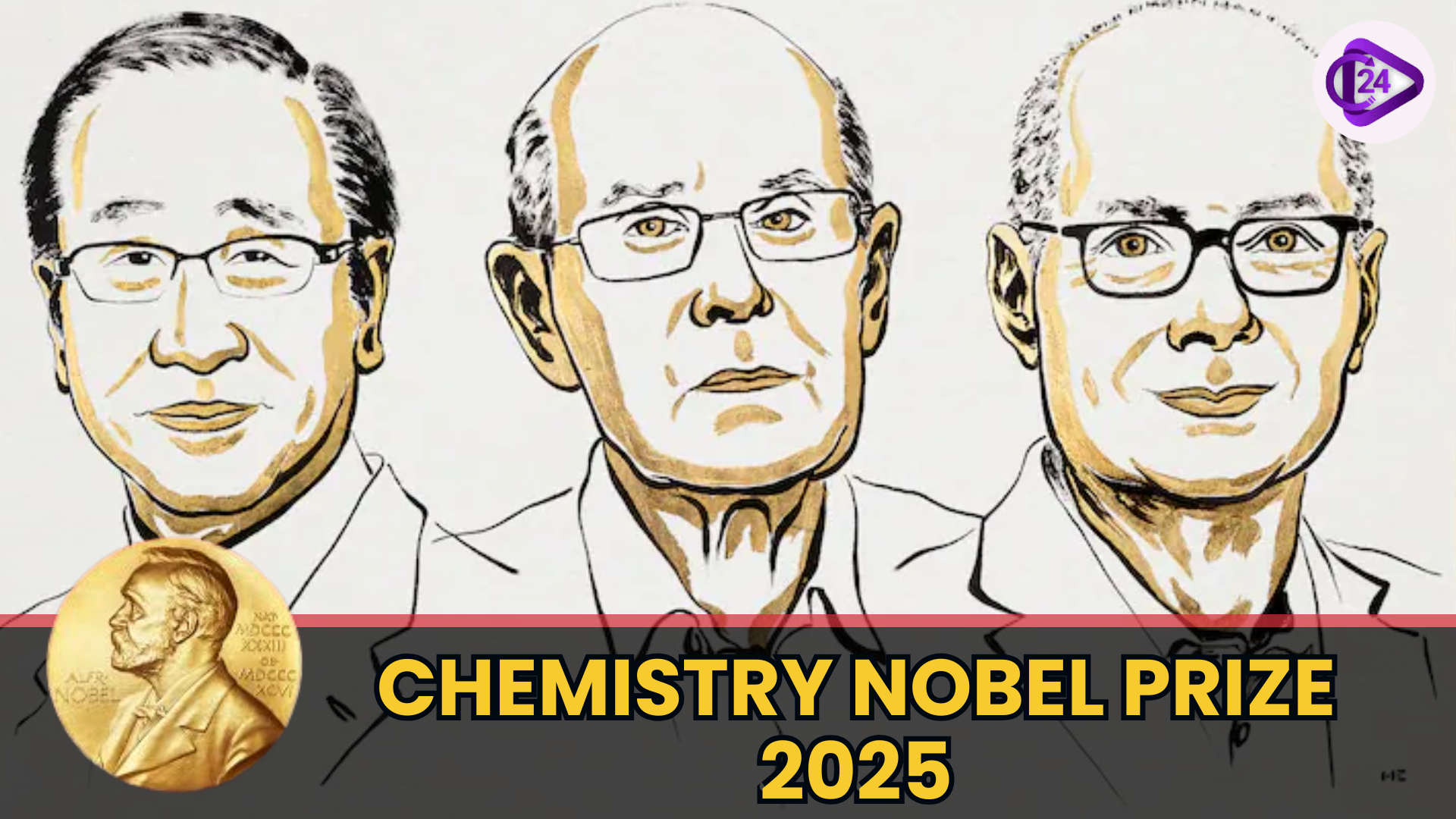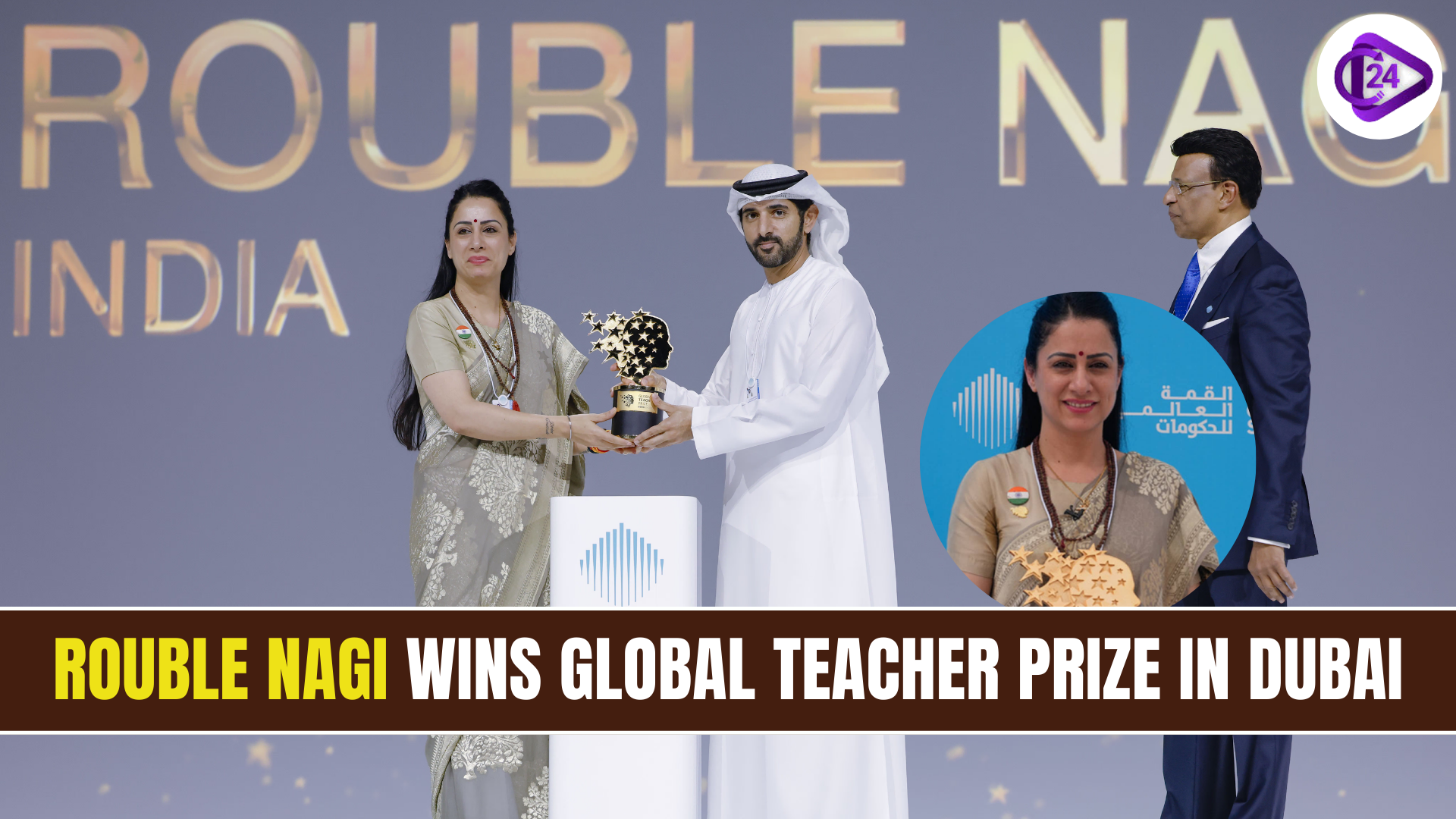Daily Quizzes
Mock Tests
No tests attempted yet.
Select Category

The 2025 Nobel Prize in Chemistry will be awarded to Susumu Kitagawa, Richard Robson, and Omar Yaghi due to their advancement in metal-organic frameworks (MOFs), porous molecules that are very porous, thereby being able to trap gases, refine water, and remove the water used in the disturbance of air pollutants. These developments present revolutionary options on carbon sequestration, cleanup of the environment, and source reclamation. Their work opens the routes to clean technologies and materials that are sustainable. Such appreciation highlights the importance of chemistry in addressing the issue of climate and establishes a new rate of material science and molecular engineering in the 21st century.
Nobel Prize in Chemistry: A Historical Journey of Scientific Excellence
- Founder Alfred Nobel (1833-1896): Swedish chemist, engineer, and inventor of dynamite.
- Mission: To recognize other scientific findings in chemistry that are beneficial to the human population.
- Original Grant: 1901 to Jacobus H. van ’t Hoff on the dynamics and osmotic pressure of the chemical state.
- Issued By: Royal Swedish Academy of Sciences.
- Selection Process: It is selected by the experts on the basis of their nomination in terms of originality, scientific value, as well as international impact.
- Prize Elements: Medal, diploma, and financial reward.
- Scope: The scope is basically fundamental and applied research in biochemistry, molecular chemistry, and materials science.
- Global Influence: The incentive to be innovative, collaborative, and excel in contemporary chemistry.
Multiple Time Winners & Multiple Time Winners
- Frederick Sanger twice (1958, 1980) due to his discoveries in protein and DNA sequencing.
- Marie Curie - discoverer of physics (1903) and Chemistry (1911): won the award because she researched radioactivity.
- 2024 Nobel (S) Chemistry Prizes Thomas Dresher (right wing), Thomas Doherty, and Thomas Pedersen (left wing) are awarded the Nobel Prizes for identifying quantum dots, which have revolutionized nanotechnology and modern materials science.
Conclusion
The 2025 Nobel Prize in Chemistry serves to underscore some innovative roles in metal-organic frameworks (MOFs), including scientists who are studying the roles in the capture of gases, purification of water, and removal of moisture rotation in the air. The fact that this award is given highlights the practical and transformative role of chemistry in solving problems of sustainability and environmental solutions. Through its recognition of such contributions in the theory of chemistry, the Nobel Prize does more than just crucial science; it can promote scientific cooperation on the planet, making chemists strive to create methods of achieving environmental adaptation to climate, resource-depleted, and current material science advances introduced in the present century.



 Puducherry Doctors Win Chang–Crandall Humanitarian Award 2026
Puducherry Doctors Win Chang–Crandall Humanitarian Award 2026 Rouble Nagi Wins GEMS Education Global Teacher Prize In Dubai
Rouble Nagi Wins GEMS Education Global Teacher Prize In Dubai Grammy Awards 2026: Full Winners List, Highlights, and Key Takeaways
Grammy Awards 2026: Full Winners List, Highlights, and Key Takeaways Mexico Shines Globally as Fatima Bosch Wins Miss Universe 2025
Mexico Shines Globally as Fatima Bosch Wins Miss Universe 2025 Michelle Bachelet Receives Indira Gandhi Peace Award
Michelle Bachelet Receives Indira Gandhi Peace Award Kerala State Film Awards 2025 Best Film Best Actor and Director
Kerala State Film Awards 2025 Best Film Best Actor and Director Anuparna Roy Wins Best Director at Venice Film Festival 2025
Anuparna Roy Wins Best Director at Venice Film Festival 2025






